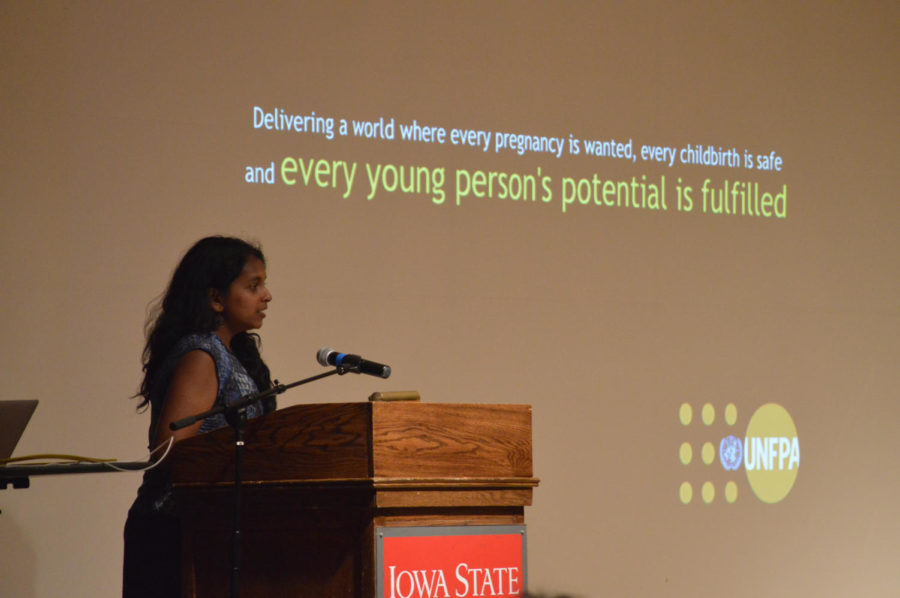Editorial: 100 Voices should inspire students to use social media for change
Onalie Ariyabandhu speaks to students in the Sun Room on Sept. 28. Ariyabandhu is an ISU alumni and leads a United Nations initiative against gender-based violence in Sri Lanka.
September 29, 2015
“I’m as ordinary as you are, but I’m just as special too.”
These words were not the main point of the “100 Voices Leading for Change” lecture that took place Monday night, but they highlighted the idea of how, as students, we have the ability to affect change.
ISU alumna Onalie Ariyabandhu, who is now working for the United Nations Population Fund in Sri Lanka, returned to campus to distribute some of her wisdom among students and talk about how she has been able to craft an initiative to end gender-based violence.
As the social change entrepreneur of the United Nations Population Fund, Ariyabandhu is calling upon young people to not necessarily make their mark upon the world but simply within their community.
During a time when people living thousands of miles away from each other can constantly communicate and share posts, photos and life events, an untapped platform exists for students to use and provide a voice for the people who may not be able to speak for themselves.
Ariyabandhu asked everyone in the audience to raise their hand if they have a Facebook account, and very few hands stayed down.
She then asked students to lower their hands if they had less than 100 friends on Facebook. Most of the hands remained in the air.
This is the idea that inspired Ariyabandhu to name her campaign “100 Voices.” She is calling on students to take advantage of the many resources available to them and to be an advocate and inspiration for 100 of their peers.
At first, this appears to be a difficult task. Someone could easily see this number and back away, believing one person, who doesn’t own a real standing in society outside of being a proud ISU student, is incapable of inspiring 100 people. Wrong.
Most students have well over 100 friends on Facebook, not to mention the number of followers the average college student has on Twitter or Instagram. An untapped resource is available to students that would provide a solid platform to stand on and tackle social issues not only here on campus but also in other communities.
Affecting real change is not difficult, meaning you don’t have to be superhuman to make a difference. Every student on campus has the ability once they realize this is the next step.







